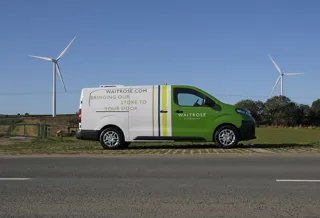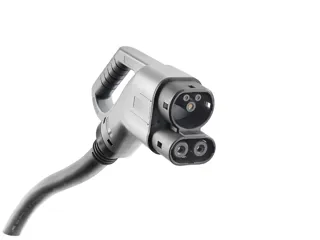Companies have up to three years to substantially transition their fleet operations to low carbon or risk reputational damage, new research from PwC suggests.
The report, Fleets ahead! Emerging pathways to decarbonise UK fleets, forecasts that the cost of commercial electric vehicles (EVs) will reach price parity with their petrol and diesel counterparts by 2024.
It suggests that, while those who act too quickly might miss out on cost savings, the greater risk is for those who act too slowly in an increasingly emissions-conscious market, as they could be judged harshly by consumers who have made the transition to electric themselves.
Matt Alabaster, PwC strategy and partner, and co-author of Fleets Ahead, explained: “As soon as electric vehicles cost the same as their ICE (internal combustion engine) equivalents, electric will be the default choice for consumers.”
Alabaster says that 2024 will likely mark the point at which electric fleets cease to be “brand enhancing” for the companies that run them.
He added: “Companies that are still operating ICE vehicles after that point risk damaging their brand; seeing a diesel delivery van running its engine outside your home will cause the same reaction as seeing someone smoking in a bar.”
The PwC research reveals that, while some fleet managers are following a decarbonisation pathway, many are not following a structured approach which is slowing down the decarbonisation process.
Alabaster said: “Electrifying your vehicle fleet is not just about buying the vehicles - it requires new thinking about energy procurement, about how to access the charging infrastructure needed, and about what skills and capabilities you need to manage and operate the fleet.”
The report suggests that councils should be mandated by Government to do more to accelerate EV charging provision in public spaces, a move that could create a major opportunity for public-private sector collaboration.
Two-thirds (66%) of those organisations interviewed for the report believe councils have a critical role to play in driving this transition with almost half of fleet drivers stating they have no charging facilities at home.
The lack of charging facilities for van drivers who have no access to off-road parking at home has also been highlighted as a key issue by the Association of Fleet Professionals (AFP), which has launched a kerbside charging initiative.
The PwC report also suggests that emerging alliances such as EV100 with manufacturers could help develop new vehicles.
Furthermore, it recognises there is an issue with choice and capacity of commercial EVs. The PwC report says that despite there being over 4.6m vans on the road, of which 3.5m are operated by fleets, the options available to fleet managers still remain two to three years behind that of the consumer car market.
For example, there are only 20 light commercial EVs on the market compared to over 9o EV options for consumers. Electric vans currently on the market don’t cater for the full range of performance parameters that fleet operators require with many having to weigh up the trade-off between payload and range, it says.
In addition, current charging infrastructure is not designed for larger electric vans, making on-street charging more difficult.
According to Adrian del Maestro, PwC strategy director and co-author of Fleets Ahead, both the UK and local government have a critical role to play as a catalyst for change in the rollout of EV and hydrogen infrastructure and as a positive influence in the commercial sector's decarbonisation journey.
He said: “While local councils have been identified as a major catalyst given their access to land, everyone recognises the financial constraints they face as well as the lack of technical specialism in charging.
“Ultimately, they do not have statutory obligations to deploy charging solutions, a move that could be a game changer in accelerating EV adoption. This is where a clear UK Government policy could act as a major catalyst for change, boosting investment and accelerating the provision of much needed infrastructure.
“The UK Government is already leading the way in accelerating adoption of EVs. It now has the opportunity to encourage local authorities to pioneer public charging solutions in association with the private sector. This will fastrack the EV revolution.”
PwC interviewed 40 organisations from fleet operators and infrastructure providers to investors. To read the Fleets Ahead report, click here.
> Interested in comparing electric vehicle data? Check out our EV tool.
> Interested in ensuring the efficient use of EVs. Check out our dedicated editorial sections: Insight & policy | EV news | Charging & infrastructure | Costs & incentives | Benefit-in-kind | EV case studies | EV road tests























Login to comment
Comments
No comments have been made yet.